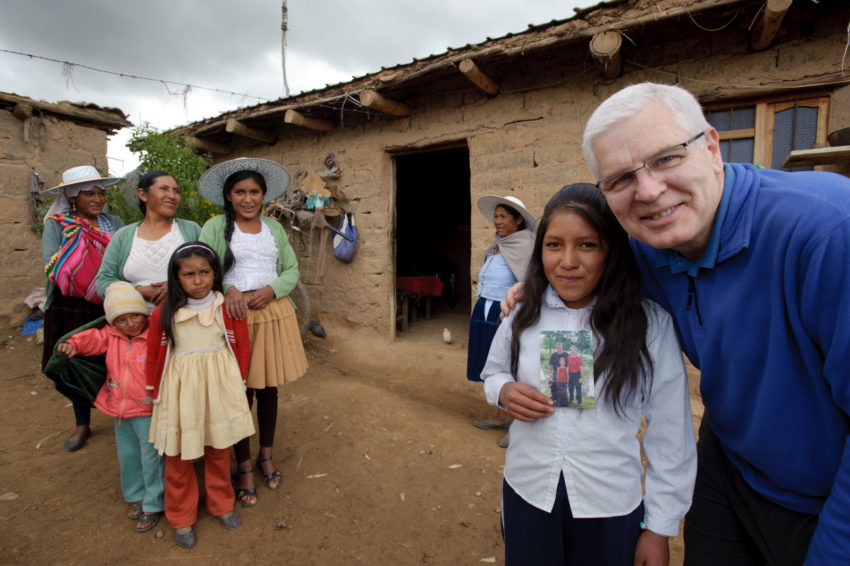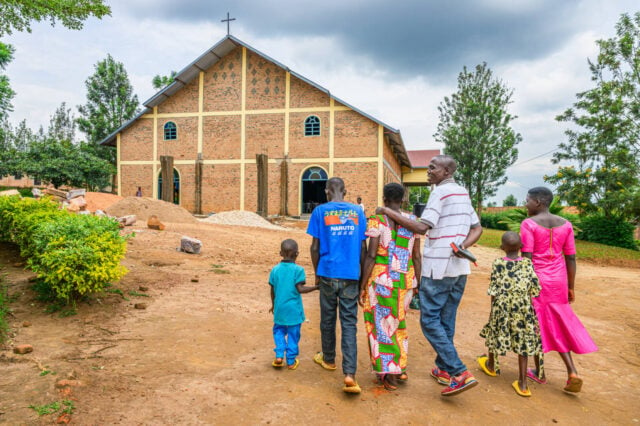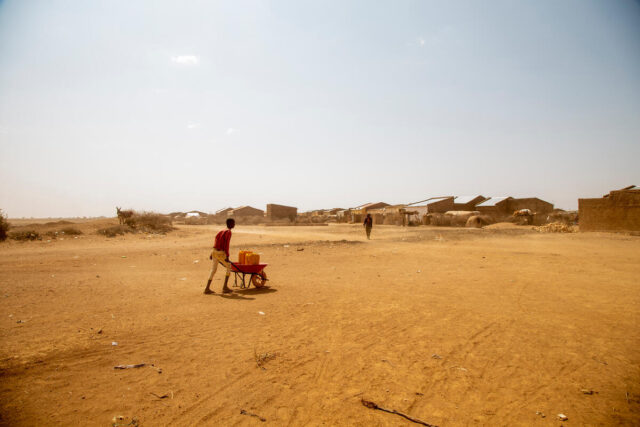Taking sides is an unsettling trend in our country these days. Our political affiliations and where we stand on issues has never been so divisive.
The church has had its own struggle with sides — for centuries — over the way to live out faith. Should we be more focused on saving souls or meeting people’s physical needs?
This is a false dichotomy, because Jesus did both. Jesus cared deeply about the poor and the downtrodden, demonstrating his compassion in tangible ways: giving sight to the blind, touching the leper, healing the sick. But he also preached the good news of God’s love and salvation.
Being on Jesus’ side means doing it all. He instructed his followers to change the world in his name by embracing two essential commands: the Great Commandment and the Great Commission. We are to love God and love our neighbors as ourselves (Matthew 22:37-39), and we are to go and make disciples of others who will do the same (Matthew 28:19-20).
It’s tempting to focus mainly on the Great Commission, as if evangelism is our only responsibility. But loving our neighbor is also critically important to Jesus.
Of all the times he spoke of it, none is more compelling than the passage in Matthew 25 when Jesus describes the actions of those welcomed into his Father’s kingdom: “For I was hungry and you gave me something to eat, I was thirsty and you gave me something to drink, I was a stranger and you invited me in, I needed clothes and you clothed me, I was sick and you looked after me, I was in prison and you came to visit me … Truly I tell you, whatever you did for one of the least of these brothers and sisters of mine, you did for me” (Matthew 25:35-36, 40).
The King will reply, ‘Truly I tell you, whatever you did for one of the least of these brothers and sisters of mine, you did for me.’—Matthew 25:40
Matthew 25 illustrates the shocking depth of Jesus’ love for the human race. His identification with “the least of these” is so profound that when we reach out to them with love and enter their pain, it is Jesus himself we are loving and embracing.
Living out the Great Commandment in the ways described in Matthew 25 catalyzes the Great Commission — because when people experience the love of Christ through our deeds, it prepares them to hear the message of Christ through our words.
So if we want to be agents of the Great Commission, first we must become agents of the Great Commandment. Being close to Christ means being close to the poor.
Matthew 25 becomes our to-do list, detailing all the problems afflicting the poor around the world today — hunger, thirst, alienation, lack of clothes, poor health, and injustice. As a child sponsor or World Vision supporter, you are responding to all these needs, helping World Vision strengthen a child’s entire community. We aim to change the lives of children and families by providing access to clean water, nutritious food, healthcare, education, and economic opportunities, but ultimately we want to change the world for Christ.
Caring for people in this way signals whose side we’re on — the side of our God, who desperately loves all people. When we demonstrate this love to the world through acts of kindness, compassion, and justice, we open the way for the message of a Savior who transforms men and women for all eternity.
World Vision U.S. President Rich Stearns is the author of The Hole In Our Gospel and Unfinished. Follow him at twitter.com/richstearns.


